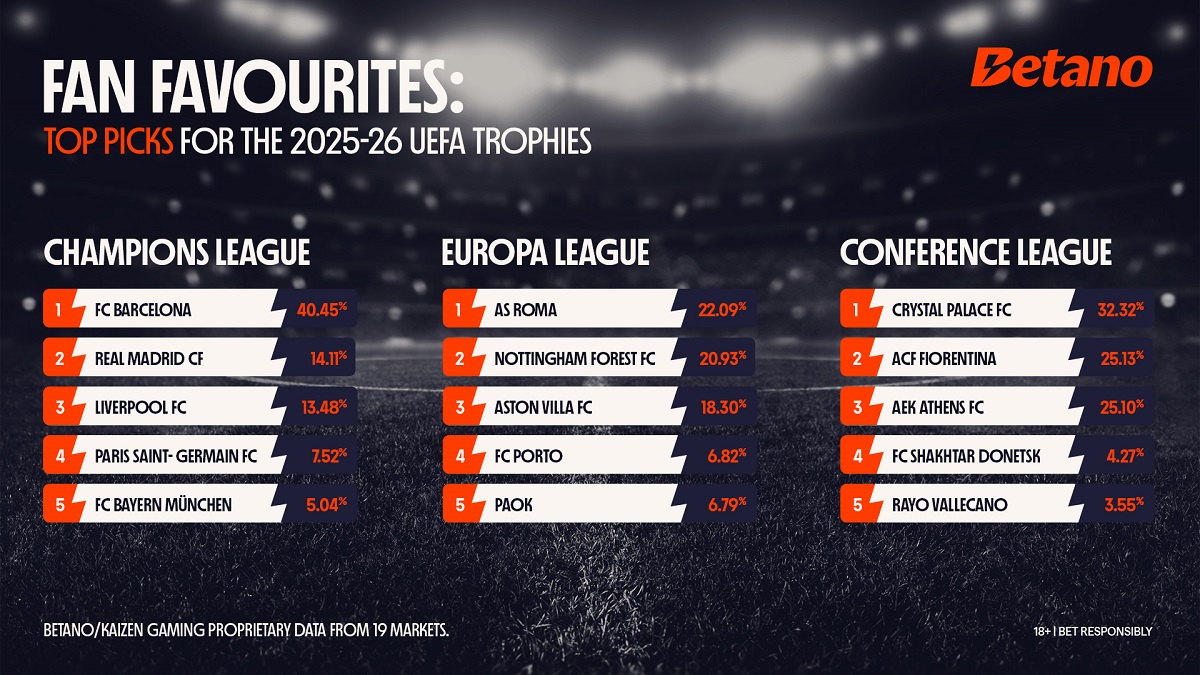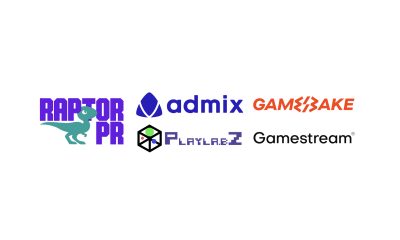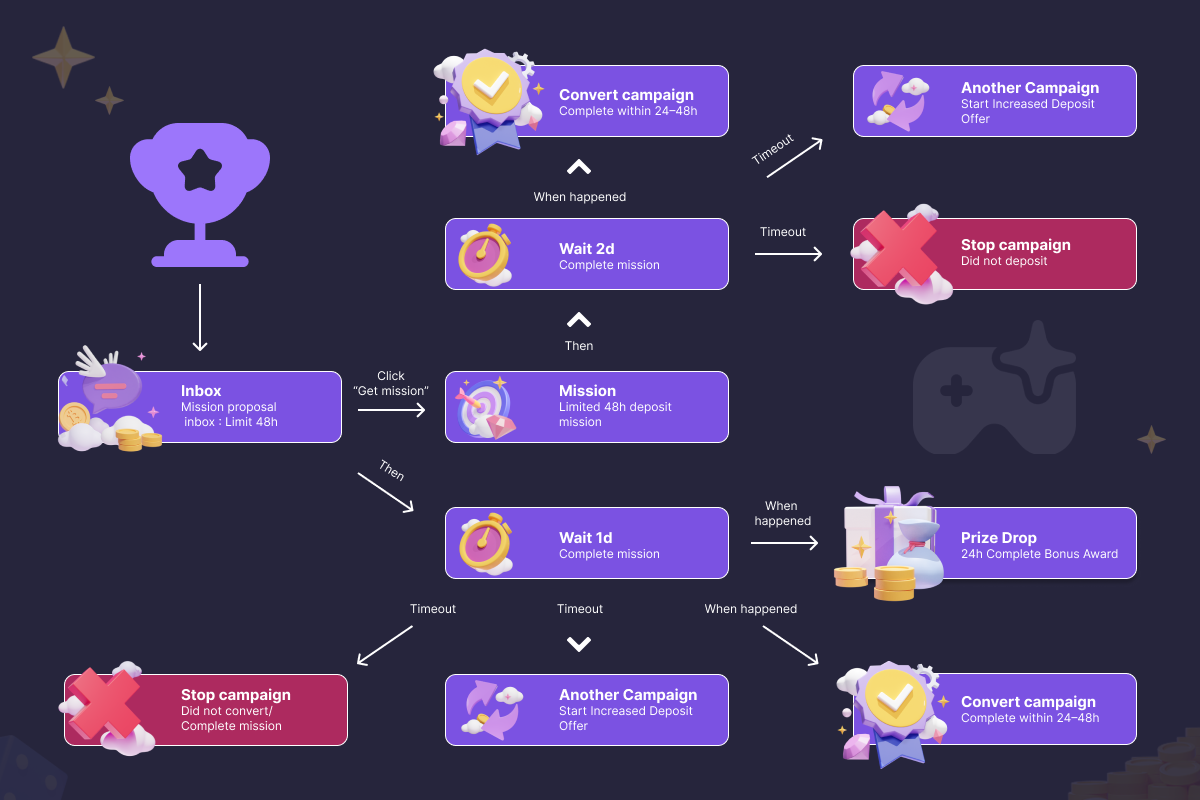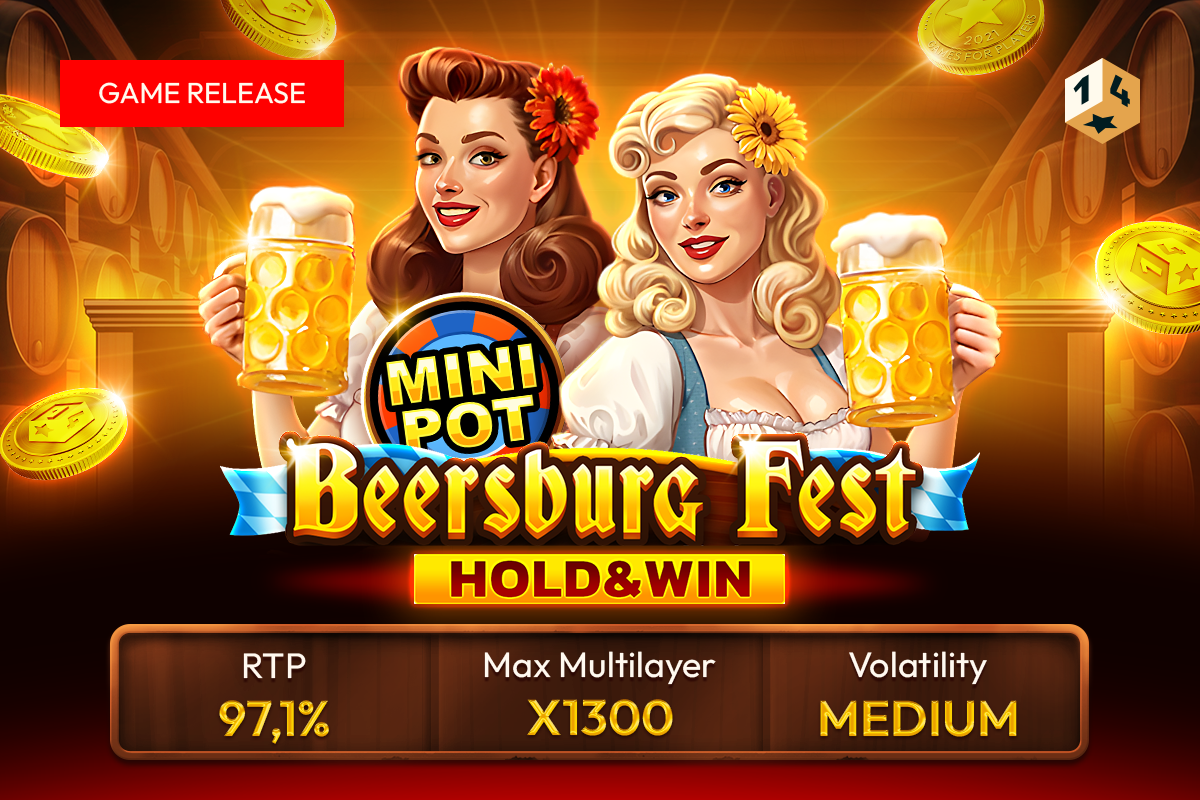Interviews
Exclusive Q&A with Michael Hudson, CEO and Co-Founder of GameBake

We have here with us an entrepreneur who started out quite early in gaming.
Michael Hudson, CEO and Co-Founder of GameBake, talks here about a host of topics:
- His beginnings as a game developer, his quest to develop a ‘fair, transparent, platform agnostic solution” that allows seamless publishing of games across platforms;
- His instinct of “running away from the light” and looking for “fringe areas”;
- What game developers can expect from GameBake;
- And about the gaming industry across the globe.
This is a bit longer than our usual interviews. But it contains nuanced perspectives expressed in straightforward language that the whole industry should look up and take note.
Over to the interview now!
Q. To start off, tell us about your career. Our readers love to hear top entrepreneurs talk about themselves, especially someone who became one at the age of 13!
A. 13 definitely feels like a lifetime ago now! But yes, I started my career in the games industry at 13 although my life as an entrepreneur goes back a little further than that. Since day one, I’ve always tried to make money – some way, somehow, from car washing to selling sweets at school (the demand was there, with only “healthy” options available at lunch times!)
Like they are for many of us, games have always been of keen interest to me, but unlike most, I always wanted to find out what makes a game and how I could make my own. I think it’s those kinds of questions that I’ve always asked that lead me towards teaching myself how to first build websites to host flash games, and then how to actually build the games themselves.
I first started exploring game development with a tool called GameMaker which is still around today, albeit much more developed than when I started with it all those years ago. Eventually I transitioned to working with Flash and building games for websites such as Newgrounds, which eventually led me to the sponsorship/licensing model and how I made my first $200 licensing my first flash game. My next flash game made over $15,000 in fees and that is when I started to take things a little more seriously because big numbers were involved. Considering I had turned down King (yes, the same King that went on to develop the hit we all know and love) I was clearly starting to move towards developing my hobby into a legit business, in a very natural way.
Since then it has been a rollercoaster with ups, downs and many loops, but it has led me to where I am today, with an amazing team (and now, friends), where we can be part of and help build the future of the gaming industry.
Q. How and why did you co-found GameBake? And what does the name signify?
A. GameBake was born out of a genuine business need. As developers, we’ve learned that it’s best to knuckle down and focus on a single product, a single goal that we can all work hard on to achieve great things.
As developers under our previous studio name, we worked on many projects, from hyper-casual games (before that became an industry term) right down to free-to-play titles. This experience was amazing but always positioned us in a similar place. Our publishers wanted the games to be playable everywhere but we only had so much manpower and hours in the day to actually achieve the lofty goals being asked of us. Integrated 3, 4 or 5 SDKs is annoying enough, but having to do that plus integrate the tech of every single platform plus find new services that work on and with these platforms plus making a new specific version for each platform (and all of that with no centralised system to easily and efficiently track everything), well, it wasn’t great, let’s leave it at that.
GameBake was a product of all of this. Our internal struggles and frustrations that led us to seeing a need in the market that, not only we wanted to solve, but many others wanted a solution for, and that is why we pivoted away from a development studio to go all-in with our KILN technology that allows us to open up the whole gaming market to developers globally, no matter how big or small you are.
What does the name signify? Well, we were named Yello at the very start so GameBake was part of our development as we pushed forwards into new markets and started using better technology. GameBake itself doesn’t have a specific meaning behind it, but for us, it describes what we do in one word, which is: baking games with the technology needed for everybody to access new amazing platforms and markets globally.
Q. How exactly does GameBake work? What kind of support can a gaming developer and publisher expect from your company?
A. How the tech works behind the scenes is probably a question more for our amazing CTO, so maybe you’ll find out in the next interview! But the concept is pretty simple really:-
• Upload your APK to GameBake, the very same APK used for uploading to Google Play;
• Check the boxes for the services your game uses; E.g. GameAnalytics, Tenjin, or Firebase, Adjust and so on;
• Check which stores you want to deploy to, e.g. Huawei AppGallery;
• Job done! Our tech (called KILN) takes care of the rest and spits out a compiled version of your game with all the required tech needed to run on the chosen platforms you are looking to distribute to.
Of course, store pages need to be built for each platform and IDs from other services need to be swapped for new IDs from those services, but for the new platforms you go live on. We are working closely with most of the big industry players to try and automate as much of this as possible and we are well on our way to achieving this.
As for what to expect from GameBake, well I would say a fair, transparent, platform agnostic solution that works! If you want to use our tech to make getting to new platforms easier, but want to make partnerships with the platforms yourself (i.e. setup features yourself and so on), that is fine, we are able to facilitate this and will do all we can to provide what you need with who you need. If what you are looking for is a more hands-on approach from us, one where we setup all your games features, run the UA and more then we can also work with you like that as well.
For GameBake, flexibility is key as we see the technology and ecosystem we are building becoming a vital piece of the development puzzle that will enable easy and commercially viable ways to distribute and scale globally.
Q. Changing the status quo of game distribution is not just unglamorous but kind of swimming against the tide too. What motivated you to choose that path?
A. That is a great way of putting it, although I may go a step further and say it’s more like climbing up a waterfall. I have always been interested in the more fringe areas of any industry, especially within gaming. That may be because I can’t help but look at the potential of anything, but it could also be somewhat from necessity – as when launching our own games we never had huge marketing budgets to compete with so I and the team have had to look into areas that were cost effective.
Over the years, what I have found is that everybody always runs towards the light and it’s the ones running away from the light that are called crazy, but if everybody is standing around that light then it very quickly gets blocked. In short – the people running towards the light will find it very hard to find their way towards it. While those running away, and normally that’s in a different direction to everyone else, will normally find themselves in a niche but lucrative area that they can dominate. It’s only once that light starts burning brighter that others pay attention.
This is how I see distribution right now. The bright light is iOS and Google Play on mobile, with many other options, but all faded into the darkness. And now, the bright lights are glowing and the industry is starting to take notice of what is possible outside of the norm. Now it won’t be instantaneous, but we are seeing growth everyday and the more we all work together to open up these platforms and these markets, the greater the industry as a whole – and the more opportunity there will be for everybody globally to enter and become successful.
Q. What are the options available for games developers outside the duopoly of Google Play store and Apple Appstore as publishing platforms? Importantly, what are the attractions for the developers to opt for such off the beaten path destinations?
A. For those developing native games for mobile (Apps, basically) I would suggest looking into the alternative android market. I personally don’t like the word “alternative” as it gives off a vibe of these platforms being “lesser” than Google Play and this frankly isn’t the case, but we need to describe these stores somehow. These stores are low hanging fruit for most people, as if you can compile an APK, which you can, then you can deploy on these stores and the 100s of millions of users that they have.
Now, I’m not saying that this is an easy feat, or an approach that will guarantee success, far from it, but why you wouldn’t secure your brand and IP, and take advantage of these amazing platforms, makes no sense. To me, It’s a no brainer! Often, what we hear from the market is not that developers don’t want to distribute to these stores, but that they’re faced by complexities in being able to achieve this and in making it commercially viable. GameBake is fixing the headache faced by developers by providing an easy route to deploy to these stores, whilst providing the means to be able to leverage the services required in today’s industry to monetise and scale games effectively.
Outside of the App Stores, there are still a wealth of opportunities. In this space, you need to think carefully about the technology you are building your game in, because web distribution generally means HTML5 games, and for many this just isn’t an option. The opportunities on the web are amazing if approached in the right way, but it takes some time to port and for many it just isn’t worth the time and effort commercially.
The same goes for social/instant gaming platforms, such as Facebook, WeChat, Snap and many more. Your games need to be in HTML5 but more importantly, you need to think about how you approach each of these platforms. You can’t just launch a game and expect it to scale, you need to launch it under the platforms features and leverage them to really take advantage of what makes each of these platforms special.
For me, the opportunities are huge but the barrier to entry is also just as big with tons of awkward tech to integrate, porting games being required and the biggest barrier is the lack of services to allow you to properly scale your game but again, that is what we are here for and we are building. If you want to deploy to stores, port to HTML5, explore new markets and leverage your current service partners to do all of this, you can do – with GameBake.
Q. How can games profit from social media platforms like Facebook Gaming?
A. This is something I am asked a lot and the answer is simple because it is no different than a game on the App Store. If your game monetises via Facebook Ads, you can leverage Facebook Audience Network to monetise it, if done via purchases, then you can use the platforms payments system. Nothing drastic needs to change in how you monetise, I mean you don’t need to start asking for donations, because there is no other way.
I guess the real question here is ‘what are the best ways to monetise on social platforms such as Facebook?’. This is a difficult one to provide a rounded answer to that will please everybody but hopefully the below will help:-
• If you are leveraging IAPs then keep in mind that Apple “currently” stops payments being processed on these platforms if playing from an iOS device. We have all seen the recent news stories though so I expect this to change over the next 12 months opening iAPs up across platforms. Until then though, just keep this in mind.
• Hyper-Casual games have an advantage on social platforms as they have such a broad target audience which makes it “simpler” to make these games go viral. That being said, not all gameplay mechanics work and this must be considered when launching on a platform such as Facebook or Snap. Just because a game was a hit in the App Store, it doesn’t mean you can just throw the game as is on social platforms and expect it to work.
• When launching any game on social platforms, just think about how to leverage that platform’s features. For example, Facebook has a tournament mode that allows players to start tournaments that are playable directly from their timeline. With the right setup and design this can be used to get players sharing with friends which can create a viral UA channel to your game. Most social platforms have specific features like this and you need to leverage them to bring users to your game, keep them engaged and coming back and of course, then monetise them.
Q. What can be done to minimize the hurdles of finance and resource that game developers face while optimizing the games for different platforms? How near are we to a software alchemy that makes games publishing-ready for different platforms?
A. Of course I’m going to say that the time is right now – with GameBake! There are no integrations required, meaning access to all supported Android channels via a single upload. We are still working hard to make this even more simple so developers globally can focus on what’s important and that is creating amazing games. Also, HTML5 platforms still have a big barrier to entry for most but again, GameBake is working hard to solve this to provide a way for developers to easily access these platforms and deploy easily to them all.
There is never going to be a way for developers to not put in any work at all. Success comes from hard work and this still rings true when targeting new platforms, be that new app stores opr social platforms, you need to research and find out who the end users are downloading and playing your games on any given platform and then adapt what you do to engage (and of course monetise said users). There isn’t a solution to stop resources being required for game design, monetisation or user acquisition but, how we see it, these are the pieces of the puzzle that studios want to keep control of. It is the deployment that is a pain in the arse mixed with a lack of a real ecosystem, it makes it near impossible to even consider distribution outside of the core stores. This is what we want to and are solving, simplifying and improving the pieces of the puzzle that are needed for studios globally to take advantage of and focus their resources and efforts on creating, managing and scaling amazing games.
Q. How are the games you work with received and played outside the marquee markets of Europe and North America? Any significant development in Asia, Africa, Australia or South America?
A. It’s a hard question to answer as it is so different for every game and you need to tackle each game on a somewhat market by market basis. In general, a game that is enjoyed in the US is likely to be enjoyed in India as well, I mean we are all humans at the end of the day, the difference comes in when trying to find success at scale in specific markets and on specific platforms.
China is probably the best example to use here because the market is huge, but it is notoriously difficult to enter without properly understanding the intricacies of the market itself. By this I mean it isn’t just localising your games text that you need to think about, but how your game looks and plays, how it is distributed to players in the market and how you can monetise it. Markets, like China’s, have restrictions on games and you need to plan how you will tackle all of this to be able to enter.
China is an extreme case, but other markets do need similar considerations when it comes to localisation. But you also need to bear in mind that your distribution strategy for Apple and Google aren’t the number one everywhere. In India, for example, Google Play is big but there are many other platforms that open up 100s of millions of users. Iran is another market with restrictions in place, therefore Google Play does not work there, so working with local stores is your entry into a market of over 70 million. Russia is another market where you need to understand the local platforms and how players play games to really localise a game properly and effectively.
So going back to what I’d said at the start, a great game is a great game no matter where you launch in the world, but making a commercial success of that game in various markets requires some thought, planning and good execution.
Q. Asia perhaps deserves more focus as a gaming market. Which Asian countries do you reckon have the most potential market as games industry markets?
A. I completely agree, Asia is mostly forgotten by western developers and it’s a shame as the potential across the region is massive. China is the world’s biggest gaming market but that is the market everyone talks about so let’s put that to one side as it isn’t an easy nut to crack.
If I were to suggest markets that have the potential for most developers of casual games to grow in the coming months and years, I would look to a market such as Indonesia where the scale you can achieve in that market alone is huge. However, a lot of the time, it just isn’t commercially viable and therefore not thought about, but with the right knowledge and partners you can access more platforms that really open up a market like this and can turn what is a good market for Google Play games into a very strong one for those thinking outside of the box.
South Korea and Japan are both strong markets for specific genres but again, you need to really think about how you approach these markets. In general, Asia as a whole has amazing potential, as well as many other regions globally.
Q. Are tight regulations or lack of clear-cut regulations a bottleneck for growth of gaming outside Europe and North America? We’d love your insight into the role regulations play in the gaming industry’s growth.
A. Regulations always hinder growth, it is the nature of regulations but of course, sometimes they are necessary. China takes it to another level! I can’t even imagine how big that market would be right now if they didn’t have these tight regulations holding it back. I understand the reasons behind why the government has set them in place (although for “Children’s health” isn’t the real reason, in my opinion) but it is holding back the market’s growth which is a big shame.
I do see the need for regulation sometimes though, for example, to stop Apple and Google tightening their grip on the market and forcing us all into paying a huge tax on the games that have been worked on so hard to get them where they are. Therefore regulations can probably help the market grow in certain cases but overall, the less governments get involved in the industry the better for the industry’s growth in the coming years.
Q. And finally, how do you get your hair so beautiful?
A. It’s all natural 😀
-

 Compliance Updates7 days ago
Compliance Updates7 days agoSOFTSWISS Compliance Expert Shares Knowledge on AML in iGaming for Sumsub Academy
-

 Latest News7 days ago
Latest News7 days agoAnimo Studios debuts virtual hosts for live table games starting with Stake
-

 Latest News7 days ago
Latest News7 days agoKaizen Gaming data – FC Barcelona the fan favourite to win the Champions League
-

 Latest News7 days ago
Latest News7 days agoWeek 37/2025 slot games releases
-

 Latest News7 days ago
Latest News7 days agoBehind the surge in XRP, DL Mining brings new opportunities to get 0.1BTC or 2ETH with your XRP
-

 Latest News7 days ago
Latest News7 days agoGR8 Tech’s Bet It Drives Wraps Season 1 with Stephen Crystal—From Las Vegas Legends to Global Gaming Leadership
-

 Canada4 days ago
Canada4 days agoBragg Gaming Group Enteres into New Financing Agreement with Bank of Montreal
-

 Asia4 days ago
Asia4 days agoPAGCOR Exec: Evolving technologies pose threats to legal gaming industry





















